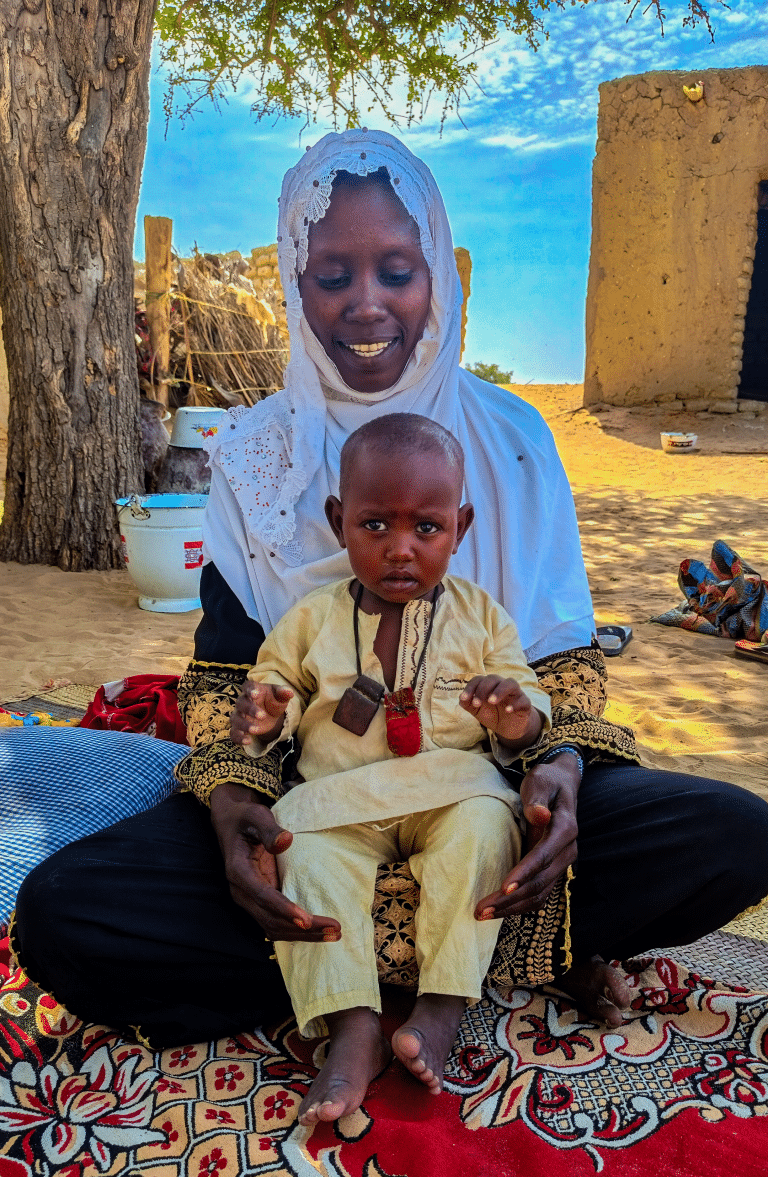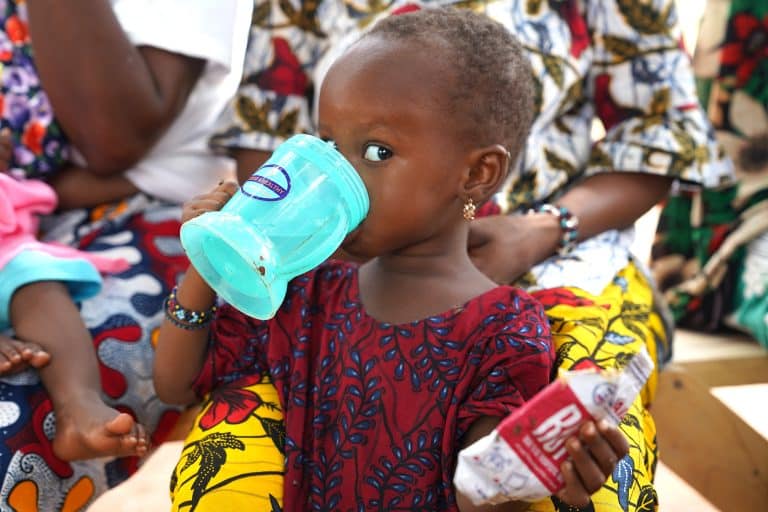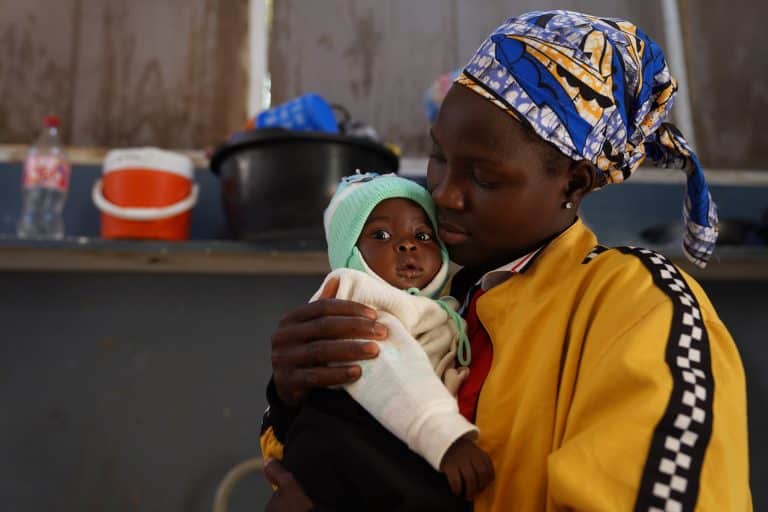ALIMA staff in Borno have seen a major spike in child malnutrition this June, with 1292 severely malnourished children admitted and treated in ALIMA supported facilities in the area. Of these, 516 children were admitted and cared for in the two Inpatient Therapeutic Feeding Centers (ITFCs) run in partnership with the University of Maiduguri Teaching Hospital (UMTH) and Maryam Abacha Hospital. According to OCHA and UNICEF reports, as Nigeria’s 2025 lean season starts, an alarming humanitarian crisis looms over the conflict-affected Borno, Adamawa, and Yobe (BAY) states. With 4.6 million people projected to face crisis or emergency levels of food insecurity and over 2.6 million children under five at risk of acute malnutrition, including 1 million expected to suffer from life-threatening severe acute malnutrition, urgent action is imperative. ALIMA is scaling up its malnutrition treatment capacity to respond to the upcoming crisis.
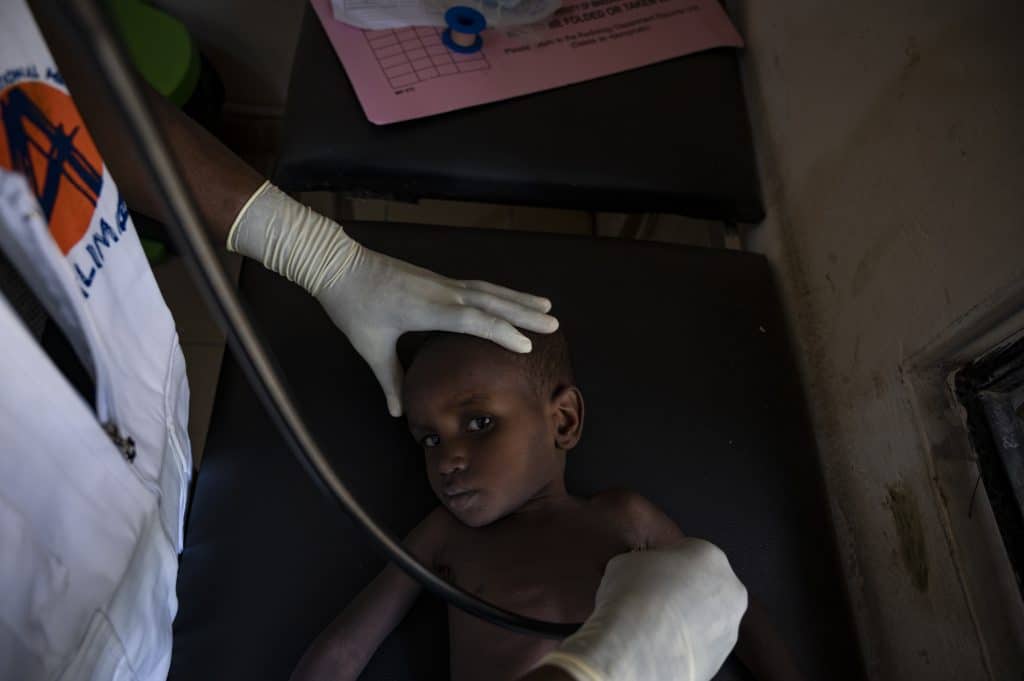
An estimated 420,000 Nigerian children under the age of 5 die from Severe Acute Malnutrition (SAM) every year, reports UNICEF. The malnutrition peak season in Nigeria, which typically occurs from May to October yearly, is already underway in Borno, Northeast Nigeria, triggering an alarming spike in acute malnutrition. From January to May over 96,000 children with Severe Acute Malnutrition (SAM) were recorded in Borno State. Jere and MMC reported the highest numbers, with 21,000 and 15,000 cases respectively. This surge, according to a 2025 report by OCHA, is driven by conflict and insecurity, displacement, and funding gaps.
CRUCIAL INPATIENT CARE DELIVERED AS ALIMA PARTNERS WITH LOCAL AUTHORITIES TO FIGHT MALNUTRITION
In response to the peak, the Alliance for International Medical Action, ALIMA, has scaled up its medical intervention at the Maryam Abacha Therapeutic Feeding Center in Maiduguri.
ALIMA, which already supports health and nutrition activities at both primary and secondary levels, (clinics and hospitals) in Jere Local Government Area (LGA), (Shuwari, Muna, Custom house clinics), and University of Maiduguri Teaching Hospital Inpatient Therapeutic Feeding Center (UMTH/ITFC) and Maryam Abacha hospitals in Maiduguri LGA, is expanding its bed capacity in Maryam Abacha hospital to accommodate the growing number of severely malnourished children arriving at the ALIMA supported facility. In June alone, 516 children were admitted. This scale-up from 50 beds to 200 in Maryam Abacha hospital has enabled ALIMA to deliver crucial inpatient treatment, stabilizing fragile cases and preventing child mortality during the peak season.
“Since June and the start of the peak season, we have seen an alarming increase in the number of children with severe acute malnutrition, and our current facilities are simply not sufficient,” said Thibault Bayart, Project Coordinator with ALIMA in Maiduguri.
“In order to meet growing needs and ensure quality care, ALIMA is working closely with hospital management and the Ministry of Health to guarantee the deployment of qualified human resources and increase bed capacity while maintaining optimal quality of care for our patients.”
By scaling up its bed capacity, ALIMA is ensuring that more children can receive the lifesaving care they urgently need without delay.
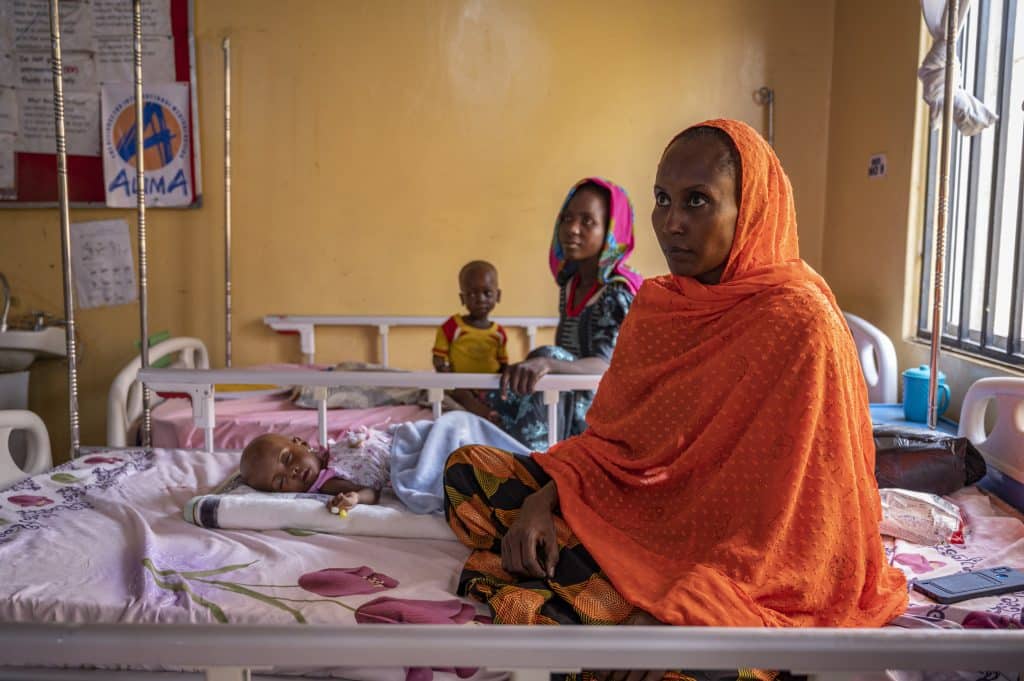
“Many of the children we admit arrive in critical conditions, often with complications like infections or severe dehydration”, said ALIMA’s Medical Referent, Dr Christian Ntowa. He added, “Due to the limited access to healthcare in communities, many families turn to herbal remedies or seek help from non-professional sources of care in their communities. As a result, the children’s conditions become severe before they arrive at the facility.”
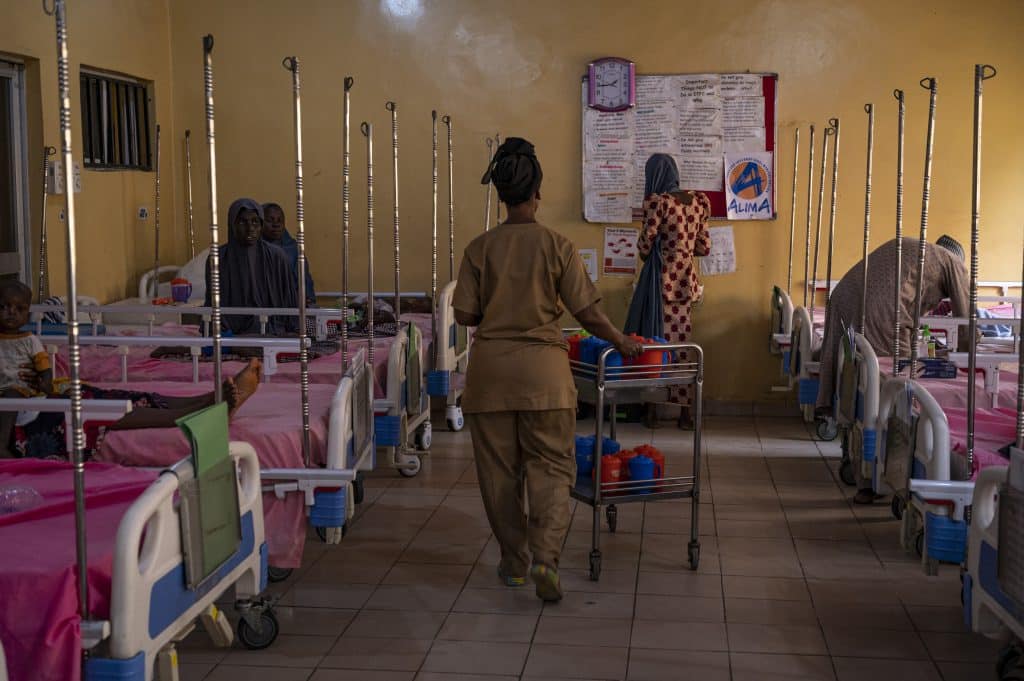
ALIMA’s efforts go beyond inpatient care, teams in Maiduguri are reinforcing community screening, outreach programs, and outpatient therapeutic feeding services and a community approach for early detection.
Through these community level interventions, ALIMA aims to reduce the number of children arriving in critical condition by identifying and treating malnutrition early. By supporting local health systems and improving access to care, ALIMA also aims to catch cases early and reduce severe complications.
These activities are made possible with funding from ECHO and UNICEF.


